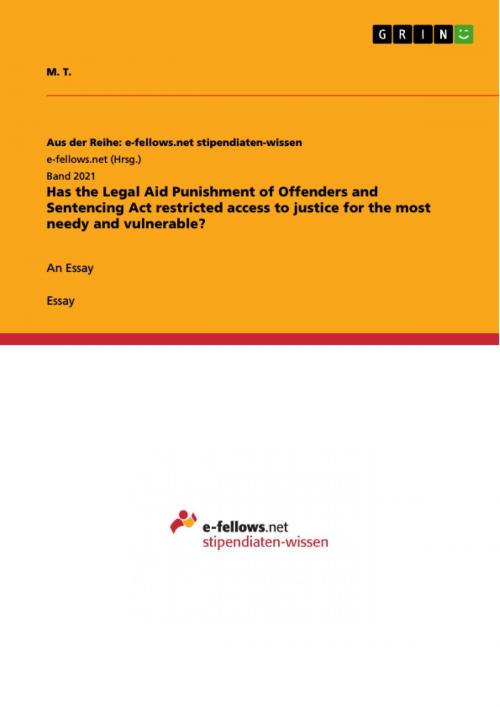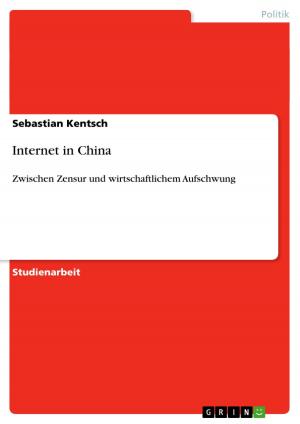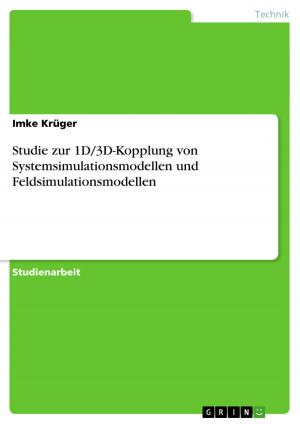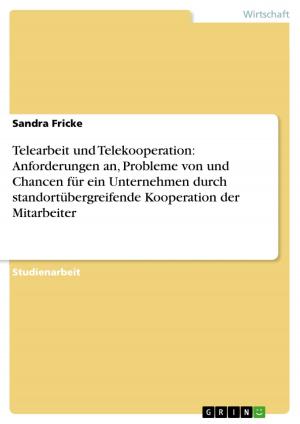Has the Legal Aid Punishment of Offenders and Sentencing Act restricted access to justice for the most needy and vulnerable?
An Essay
Nonfiction, Reference & Language, Law, International| Author: | M. T. | ISBN: | 9783668267954 |
| Publisher: | GRIN Verlag | Publication: | August 3, 2016 |
| Imprint: | GRIN Verlag | Language: | English |
| Author: | M. T. |
| ISBN: | 9783668267954 |
| Publisher: | GRIN Verlag |
| Publication: | August 3, 2016 |
| Imprint: | GRIN Verlag |
| Language: | English |
Essay from the year 2016 in the subject Law - Comparative Legal Systems, Comparative Law, grade: 72%, 13 Punkte, University of Hull (Law School), language: English, abstract: The aim of this essay is to work out the legal aid changes brought about by the LASPO and to discuss if they restricted access to justice for the most needy and vulnerable. First, this essay will explain the term 'legal aid', then the situation and the problems before the LASPO was enforced will be outlined. In the next section, the changes introduced by the LASPO will be illustrated, followed by an evaluation of the question of whether these changes have restricted access to justice for the most needy, concluding that they have not been denied access to justice in the cases that most merit it. Finally, the issue of whether or not access to legal advice and representation should be freely available to everyone will be discussed, reaching the conclusion that not everyone should be freely entitled to legal aid.
Essay from the year 2016 in the subject Law - Comparative Legal Systems, Comparative Law, grade: 72%, 13 Punkte, University of Hull (Law School), language: English, abstract: The aim of this essay is to work out the legal aid changes brought about by the LASPO and to discuss if they restricted access to justice for the most needy and vulnerable. First, this essay will explain the term 'legal aid', then the situation and the problems before the LASPO was enforced will be outlined. In the next section, the changes introduced by the LASPO will be illustrated, followed by an evaluation of the question of whether these changes have restricted access to justice for the most needy, concluding that they have not been denied access to justice in the cases that most merit it. Finally, the issue of whether or not access to legal advice and representation should be freely available to everyone will be discussed, reaching the conclusion that not everyone should be freely entitled to legal aid.















